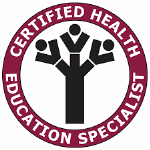Careers and credentials
You will be equipped with the advanced skills and knowledge prepared to help the most vulnerable populations.
MS Faculty
Health services and social assistance are in the top three employment sectors that will see the most growth in Washington State and nationwide over the next 10 years. Graduates are prepared to work in a variety of fields and settings in the public and private sectors regionally, nationally and globally. Examples include community and global health agencies, legislative advocacy groups and associations, non-profits, education, national, state, and local government, corporations, hospitals, a variety of healthcare settings and consulting. Career categories include Community and Social Service, Mental Health and Substance Abuse, Research, Medical and Health Services, Legislative Advocacy, Fitness and Wellness, and Health and Community Education.

Examples of positions graduates may pursue
- Public Health Specialist
- Public Health Information Officer
- Program Director
- Health and Human Services Coordinator
- Director of Community Outreach
- Health/Wellness Director
- Public Health and Policy Analyst
- Disease Research and Investigation Specialist
- Social Justice and Race Coordinator
- Housing Coordinator
- Diversity, Equity Inclusion Educator
- Director of College Health Promotion
- Director of Emergency Preparedness
- Health and Human Services Representative
Preparing you for credentialing
As a graduate of the program, further your professional education with one or more of the following credentials recognized by numerous employers.
- Certified Health Education Specialist (CHES): Entry-level credentialing of health education skills and competencies coupled with more advanced-level skills.
- Master Certified Health Education Specialist (MCHES): Advanced-level CHES credentialing. It focuses on advanced health education skills and competencies for leadership roles.
- Certified in Public Health: Signifies mastery of the foundational knowledge and skills relevant to contemporary public health as a graduate-prepared professional. According to NCHEC, Washington State is one of the largest national employers of CPH specialists.
These credentials conform to established national standards of practice and verify a health education specialist’s knowledge and skills are current for health education and promotion across employment settings. To get started, review the helpful infographic illustrating the eligibility requirements and differences between the three credentials located on the National Commission for Health Education Credentialing (NCHEC) site.
Scholarships for the CHES credentialing
The Society for Public Health Education (SOPHE) offers a Helen P. Clearly scholarship for graduate students who are pursuing the CHES exam and may need financial support. You can read more about it to determine if you are eligible and to apply here: https://www.nchec.org/scholarships
Watch the following video to learn why you’d want to become credentialed as CHES/MCHES specialist and what people enjoy about their work as a credentialed professional.


Updated 6.4.24
